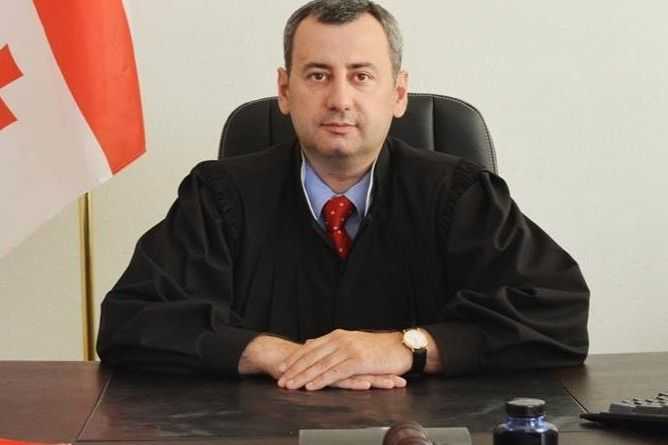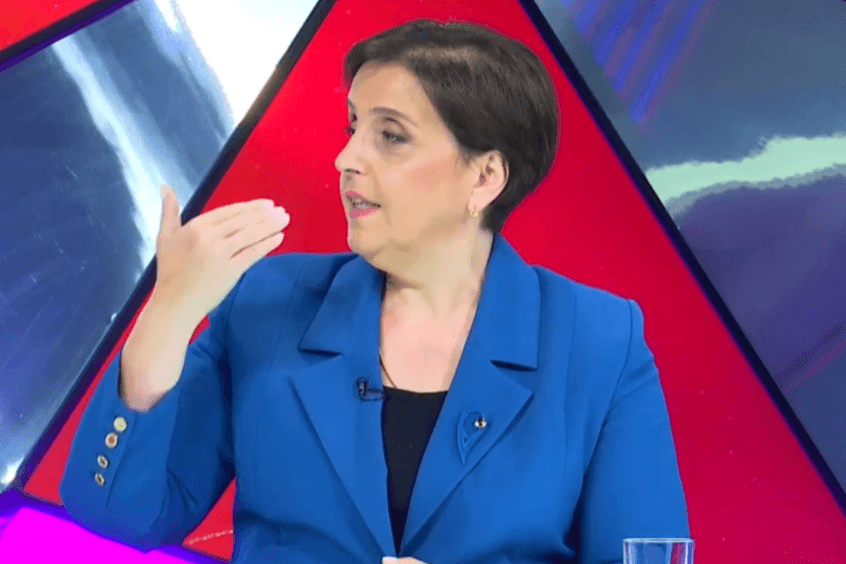
The Georgian judge who convicted the director of TV channel Mtavari, Nika Gvaramia, has accused the US of pressuring Georgia’s judiciary, confirming claims that the US revoked an invitation to a study tour in the country after his controversial ruling.
Tbilisi City Court Judge Lasha Chkhikvadze sentenced Gvaramia to three and a half years in prison in May for mismanaging Rustavi 2’s finances. The ruling has been widely criticised by local and international rights groups as both legally unsubstantiated and politically motivated.
A recent call by the EU to Georgian authorities to ensure ‘that criminal procedures brought against media owners fulfil the highest legal standards’ was widely understood to be referring at least partially, if not primarily, to Gvaramia’s case — especially as they relied on an earlier opinion by the European Commission which explicitly condemned his sentencing.
In a statement disseminated by Georgian TV channel Rustavi 2, Judge Chkhikvadze claimed that a representative of the US Embassy in Georgia, Kevin Burke, had questioned him about his sentencing of Gvaramia.
‘He [Burke] told me that the ambassador was interested in why I arrived at a guilty verdict and especially why I chose a prison sentence as a penalty. It is my evaluation that this was a request to report on a specific case. He also added that my participation in a visit (among six criminal judges) planned six days later […] would not be desirable and that I had been removed from it’.
Chkhikvadze described this alleged exchange, as well as a recent statement by a German Member of the European Parliament, Michael Gahler, as foreign pressure on the Georgian judiciary.
On 13 July, in the run-up to an appeals hearing on Gvaramia’s case slated for next week, Gahler expressed hope that the court would ‘use the opportunity to acquit Mr Gvaramia […] in order to correct earlier mistakes and to restore a strong voice of free media’.
Chkhikvadze added that ‘certain political forces’ were also threatening him with sanctions.
The Georgian judge called on ‘political parties, the diplomatic corps, and international and Georgia-based non-government groups’ to abstain from pressuring the judiciary.
Later on Friday, US Ambassador to Georgia Kelly Degnan denied any undue pressure.
‘Any suggestion that the US was interfering in a judicial process here is simply not true’, she said.
Chkhikvadze’s exclusion from the study tour to the US was first reported by opposition-leaning TV channel Formula on 20 May, four days after Gvaramia’s sentencing.
Later that day, the chair of the ruling Georgian Dream party, Irakli Kobakhidze, called on US Embassy in Georgia to deny that he had been excluded.
Kobakhidze accused opposition-leaning TV channels of slandering the US by suggesting they would illegally discriminate against a Georgian judge on political grounds.
The US Embassy briefly responded to Kobakhidze’s call by stating only that their programmes to help the Georgian judicial system were implemented in a ‘non-partisan, apolitical’ manner and that they were ‘confident’ these efforts complied with both Georgian and US laws.
In recent years, local watchdogs and Western countries have grown increasingly critical of an alleged alliance between the ruling party and a network of influential judges.
[Read more on OC Media: Georgia’s ‘clan of judges’ hits out at ‘foreign interference’]









